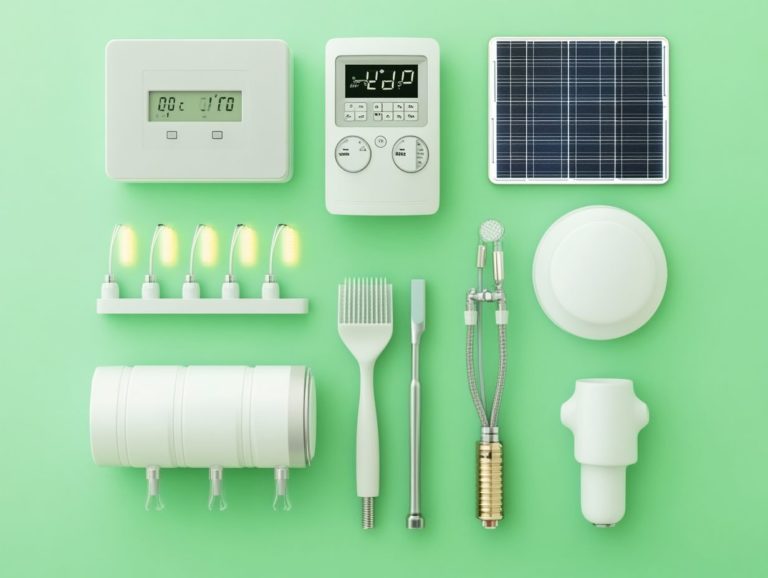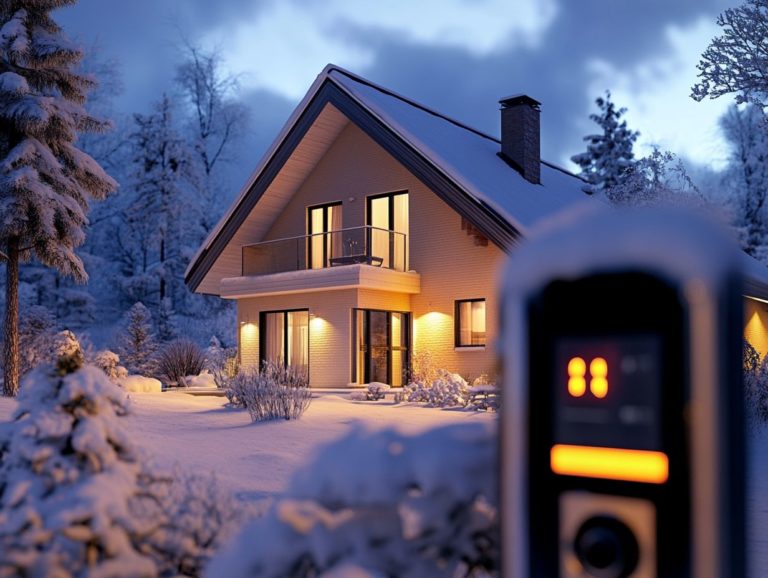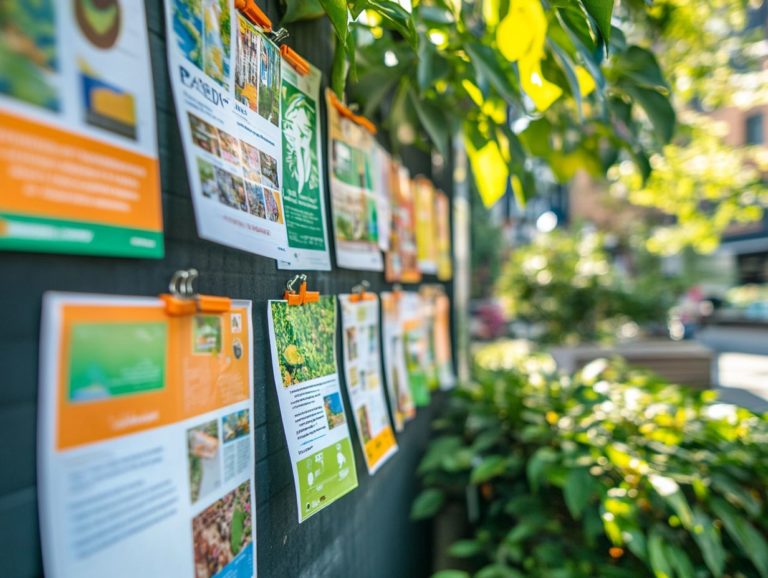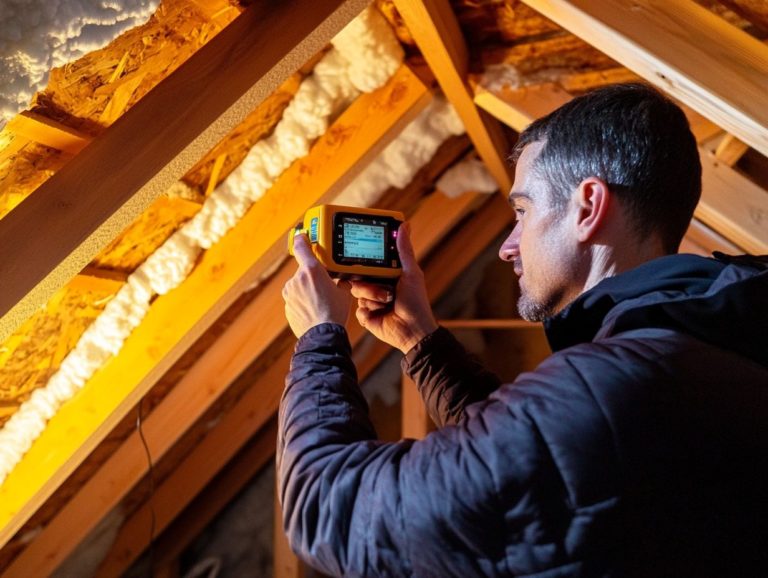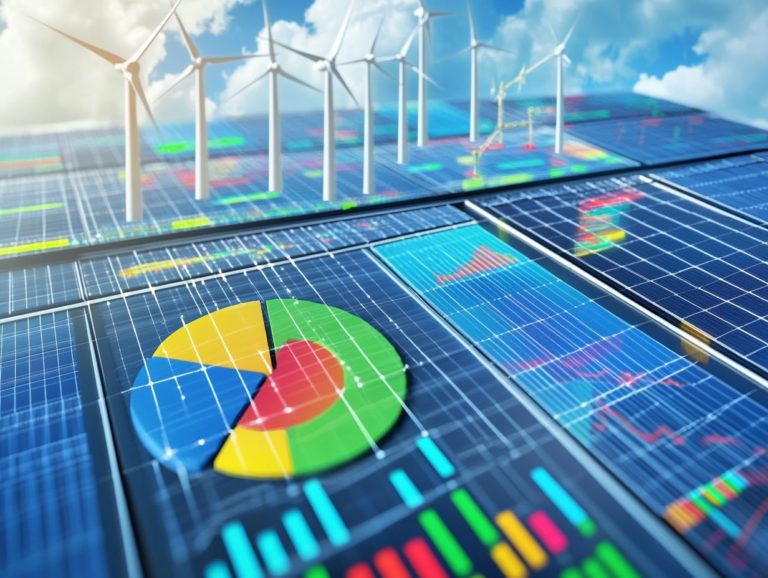How to Evaluate Your Home’s Energy Needs
Understanding your energy needs is essential for effectively managing your home’s efficiency and sustainability. This article delves into the various factors that influence energy consumption, guiding you to assess your home’s current state and identify common efficiency challenges.
You ll find practical methods to calculate your energy usage and pinpoint areas where you can potentially save. With valuable solutions and maintenance tips at your fingertips, you ll gain the insights required to make informed decisions, leading to significant reductions in your energy costs.
Explore how even small changes can create a more energy-efficient home for you!
Contents
- Key Takeaways:
- Understanding Your Energy Needs
- Assessing Your Home’s Energy Efficiency
- Calculating Your Energy Usage
- Identifying Potential Energy Savings
- Implementing Energy Efficient Solutions
- Monitoring and Maintaining Energy Efficiency
- Frequently Asked Questions
- What are the factors that affect my home’s energy needs?
- How can I determine my home’s current energy consumption?
- What is a home energy audit and why is it important?
- What steps can I take to reduce my home’s energy needs?
- Is renewable energy a viable option for meeting my home’s energy needs?
- How often should I evaluate my home’s energy needs?
Key Takeaways:
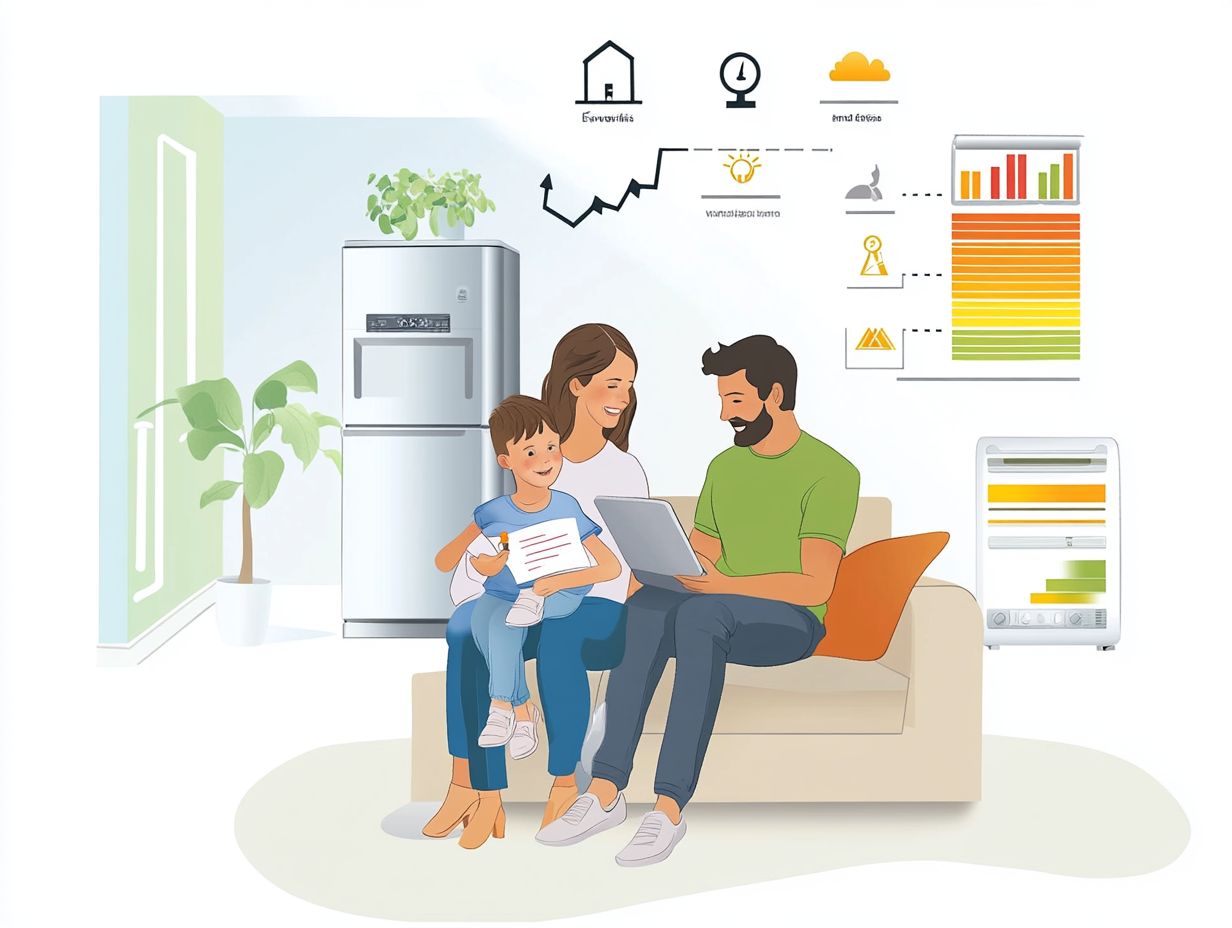
Understanding your home’s energy needs is crucial in reducing energy consumption and saving money. Regularly checking your home’s efficiency and finding areas to improve can save you a lot of energy. Implementing cost-effective solutions and consistently monitoring and maintaining energy efficiency are key steps in sustaining long-term energy savings.
Understanding Your Energy Needs
Understanding your energy needs is crucial for enhancing energy efficiency in your home. To get started, consider preparing your home for an energy audit, which can potentially lead to substantial utility savings.
By doing an energy check, you can evaluate your energy consumption and identify the areas that need attention. A thorough assessment of insulation levels, air leaks, heating systems, and cooling equipment will offer valuable insights into how energy moves within your space, empowering you to make informed choices about energy-efficient upgrades.
Factors that Affect Energy Consumption
Several factors significantly influence energy consumption in residential settings, such as the efficiency of mechanical systems and HVAC systems. Grasping these components is essential for homeowners like you who want to reduce energy costs and enhance your home’s energy performance.
Regular HVAC maintenance is crucial for ensuring optimal performance, minimizing energy waste. It s also important to pay attention to insulation gaps, as these can lead to considerable heat loss or gain, directly affecting your energy efficiency. Don’t overlook the necessity of periodic window inspections; checking for drafts is vital because poorly sealed windows can create discomfort and force your HVAC system to work harder than it should.
Using these energy-saving strategies will transform your home into an energy-efficient haven that not only lowers your monthly utility bills but also contributes to a more sustainable environment.
Assessing Your Home’s Energy Efficiency
Assessing your home’s energy efficiency requires a meticulous evaluation of several key components, from heating and cooling systems to insulation and air movement. To learn more about enhancing your home’s performance, check out this guide on how to improve your home’s energy rating.
By utilizing special tools to find energy leaks, you can pinpoint energy leaks and identify areas that require enhancement with precision.
This thorough approach empowers you to make informed decisions, ensuring your home operates at peak efficiency.
Common Energy Efficiency Issues
Common energy efficiency issues in your home often arise from inadequate insulation and persistent air leaks. These problems can lead to increased energy consumption and soaring bills, making energy-saving tips and solutions essential for your household.
You may find yourself frustrated by outdated HVAC systems that struggle to maintain comfortable temperatures, adding to the challenge. When left unchecked, these systems not only limit effective heating and cooling but also contribute to a larger carbon footprint.
To tackle these issues, consider investing in energy-efficient appliances that can greatly enhance your home s overall efficiency and comfort. Opting for Energy Star-rated models is a smart move, as they ensure better performance while keeping energy usage to a minimum.
Additionally, adopting eco-friendly practices such as sealing insulation gaps and using programmable thermostats can significantly boost your energy conservation efforts, helping you create a more sustainable living environment.
Calculating Your Energy Usage
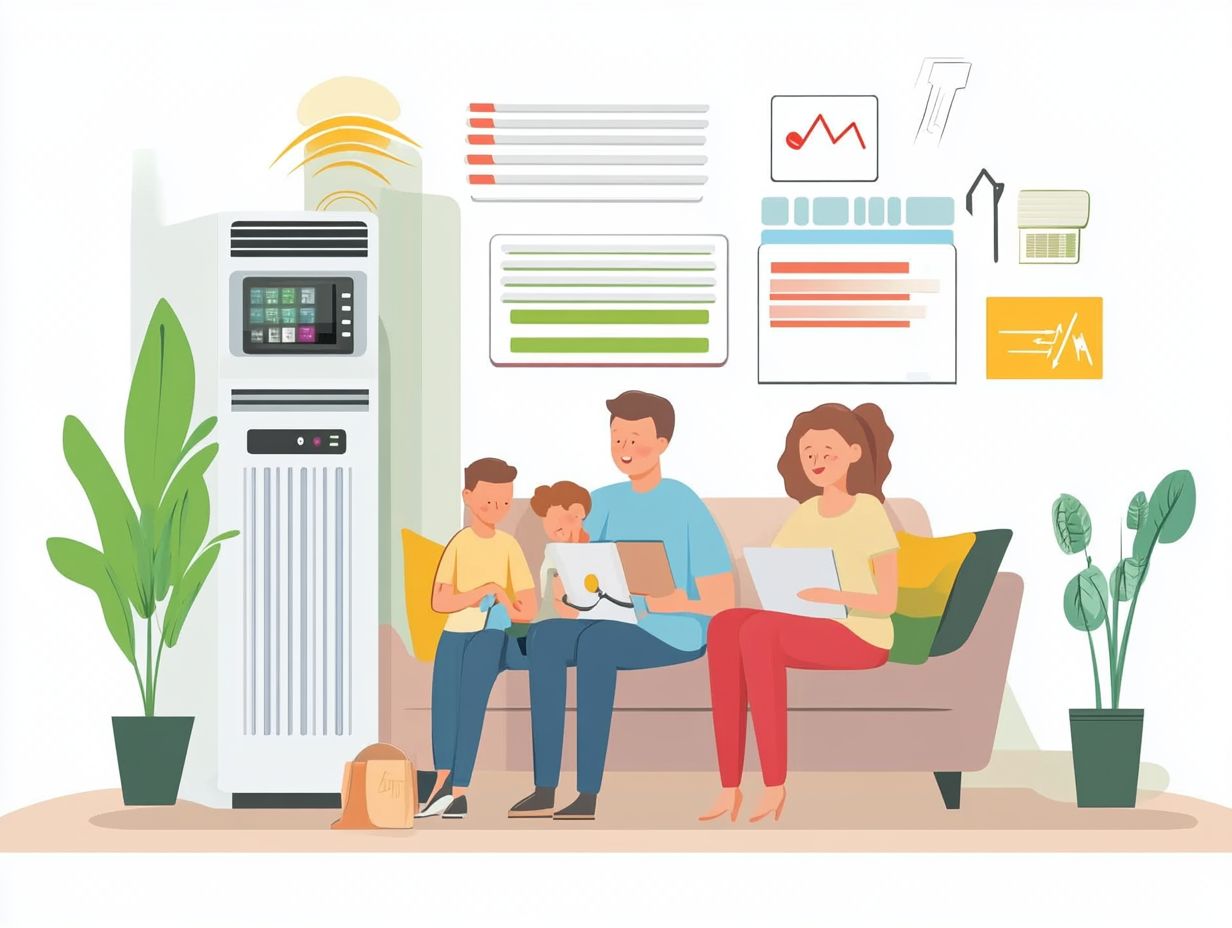
Calculating your energy usage is crucial for mastering your energy consumption. By analyzing your energy data and implementing efficiency metering systems, you can uncover valuable insights into your habits and utility rates, allowing you to manage your energy use more effectively and make informed decisions.
Don’t wait take action now to cut your energy bills!
Start your energy-saving journey today!
Methods for Measuring Energy Consumption
Want to cut down on energy costs? Here are effective ways to measure your energy use!
Effective methods for measuring energy consumption include conducting home inspections and energy assessments, which offer a detailed analysis of your energy usage patterns.
By utilizing tools like efficiency metering and energy-saving kits, you can further enhance your understanding of how energy flows through your home.
Incorporating smart meters and energy monitors allows you to gain real-time insights into your energy habits, giving you the power to make informed decisions that lead to reduced costs and increased efficiency.
Regular home inspections uncover areas of heat loss and identify outdated appliances that may be draining excessive power.
Energy assessments are essential, as they evaluate your insulation levels and recommend necessary improvements, ultimately supporting a more sustainable lifestyle.
Together, these strategies create a comprehensive approach to managing energy. This enables you to track your usage effectively while conserving valuable resources.
Identifying Potential Energy Savings
Identifying potential energy savings involves careful steps. You must evaluate energy performance and consider energy-efficient upgrades, as these elements are pivotal to your success.
By implementing targeted energy-saving tips, you can effectively maximize your utility savings and enhance the overall efficiency of your home.
Areas for Improvement
Key areas for improvement typically involve insulation levels and sealing air leaks, both of which have a direct impact on your home’s overall energy efficiency. Address these issues with energy assessments to save money and energy!
Attics, for instance, are often notorious for heat loss due to insufficient insulation, while windows and doors may fail to provide optimal sealing against the elements. Upgrading to energy-efficient windows and ensuring your doors are well-sealed can significantly reduce energy waste.
These enhancements cultivate a more comfortable living environment by maintaining consistent temperatures and lower your utility bills, making them a savvy investment.
By concentrating on these particular areas, you promote sustainability and enhance your property’s overall value.
Implementing Energy Efficient Solutions
Implementing energy-efficient solutions is crucial for optimizing your energy performance and minimizing overall consumption.
By upgrading your heating, ventilation, and air conditioning (HVAC) systems, enhancing insulation, and adopting sustainable practices, you can effectively achieve these goals and create a more efficient environment.
Cost-Effective Changes to Reduce Energy Usage
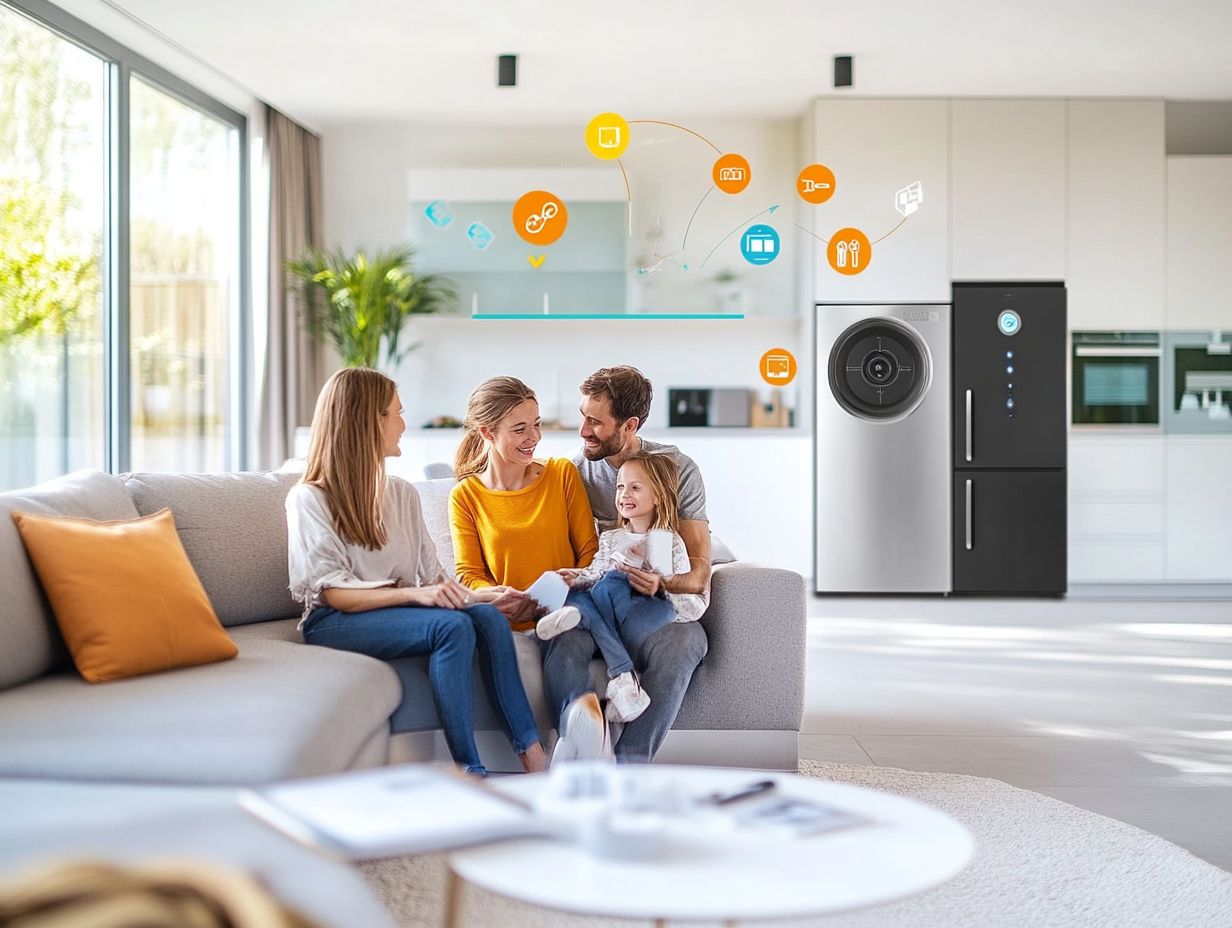
Cost-effective changes can significantly reduce your energy usage without breaking the bank! Simple upgrades, like swapping out your regular lightbulbs for energy-efficient ones and sealing those pesky air leaks, can yield impressive utility savings and lower your energy bills.
You might want to consider additional steps, such as installing programmable thermostats. They offer superior temperature control and can help you reduce your heating and cooling expenses. Investing in energy-efficient appliances not only slashes your energy consumption but also elevates your everyday comfort.
Adding insulation and utilizing weather stripping are further strategies that can enhance your home s energy efficiency, ensuring a cozy atmosphere no matter the season.
These energy-saving measures don t just lead to immediate savings on your monthly bills; they also promote a more sustainable lifestyle, ultimately delivering long-term financial benefits as energy prices keep climbing.
Monitoring and Maintaining Energy Efficiency
Keep your home running efficiently by monitoring and maintaining your energy usage over time.
By conducting regular HVAC maintenance and reviewing your energy usage data, you can identify trends that enable you to implement effective energy-saving strategies. This proactive approach enhances comfort and contributes to long-term savings.
Tips for Sustaining Energy Savings
Sustaining energy savings requires your dedication to energy-saving practices and regular home inspections.
By doing regular checks, you can ensure comfort and efficiency in your home.
Start with a routine check of your insulation and sealing around doors and windows. Even tiny leaks can lead to big energy losses.
Think about getting smart thermostats to better manage your heating and cooling. This will enhance your overall energy management.
Stay informed about energy-saving upgrades like LED lighting and ENERGY STAR appliances. They help you save money while reducing your environmental impact.
Regularly assess these features to maintain peak performance. This keeps your energy efficiency strong and promotes a greener lifestyle.
Frequently Asked Questions
What are the factors that affect my home’s energy needs?
Several key factors can impact your home’s energy needs, including size, layout, number of occupants, and daily energy usage habits. To learn more about improving efficiency, check out this guide on how to optimize your home’s energy performance.
How can I determine my home’s current energy consumption?
The best way to evaluate your home’s energy needs is to conduct an energy audit. This check-up can be done by a professional or through a DIY approach using tools like a home energy monitor or an online energy calculator, as well as understanding how to evaluate your home’s insulation.
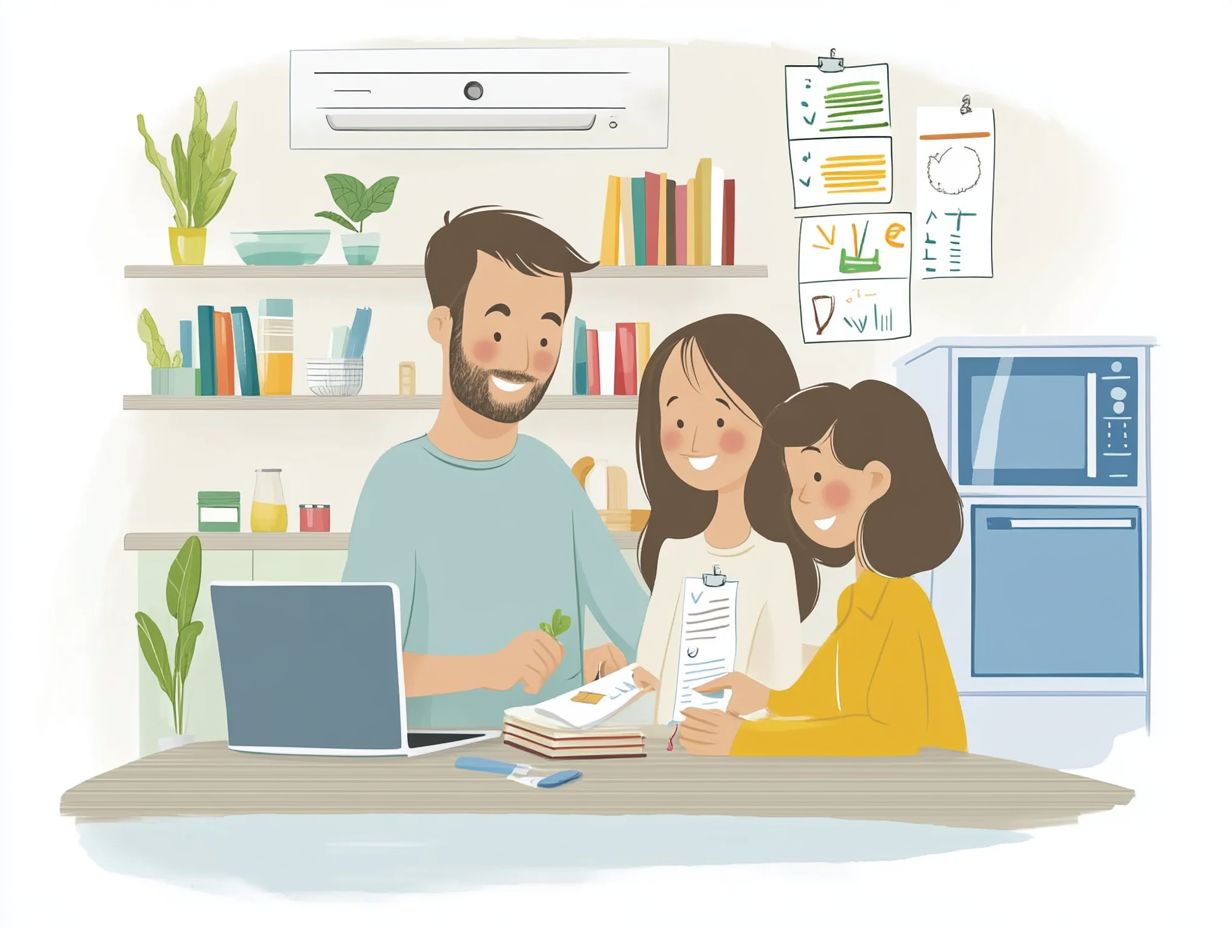
What is a home energy audit and why is it important?
A home energy audit is a thorough evaluation of your home’s energy efficiency. It identifies areas where energy is wasted and offers recommendations for improvements that can save you money and reduce your environmental impact.
What steps can I take to reduce my home’s energy needs?
You can take many simple steps to reduce your home’s energy needs. Upgrading to energy-efficient appliances and lighting, sealing air leaks, and adding insulation are effective measures.
Be proactive! Mind your energy usage habits by turning off lights and unplugging electronics when not in use.
Is renewable energy a viable option for meeting my home’s energy needs?
Yes, renewable energy sources like solar panels and wind turbines can be great ways to meet your home’s energy needs sustainably.
However, evaluate your home’s energy efficiency first and make necessary improvements before investing in renewable energy.
How often should I evaluate my home’s energy needs?
It’s recommended to evaluate your home’s energy needs at least once a year, especially to learn how to improve your home’s energy efficiency. Your energy usage and efficiency may change over time.
Reassess after making significant changes to your home, like adding new appliances or completing renovations.


